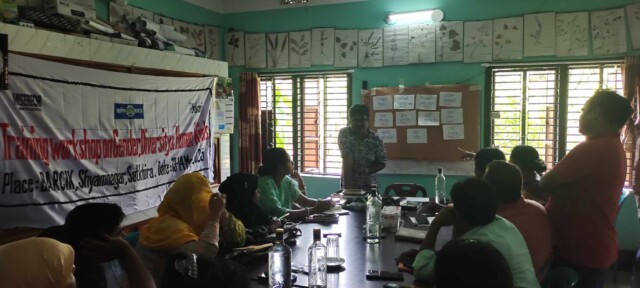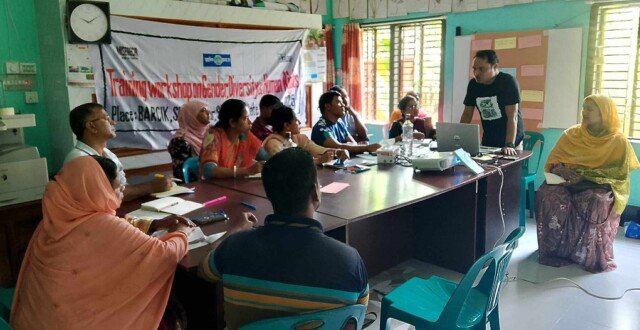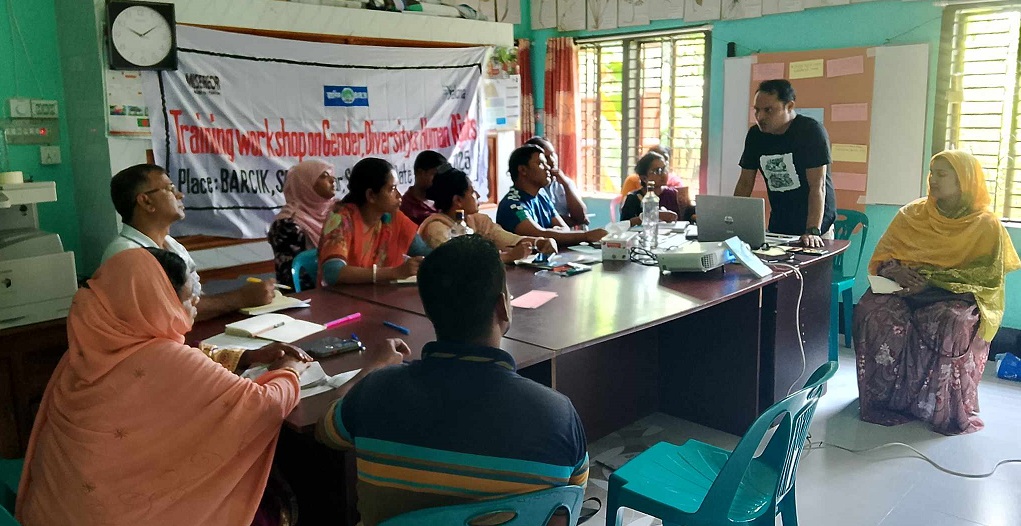By Champa Mallik and Mofizur Rahman, from Shyamnagar (Satkhira)
A two day workshop titled “Gender, Diversity, and Human Rights” was organized by BARCIK recently in the coastal sub-district of Shyamnagar, Satkhira. All BARCIK staff members participated in the workshop and gained insights and knowledge.
The main facilitators of the workshop were BARCIK Director Syed Ali Biswas and development researcher Pavel Partha. The training began with a patriotic song, followed by an expectation-mapping session where participants used VIP cards to express what they hoped to gain from the workshop. These expectations were then shared and discussed collectively.

On the first day, the facilitators conducted an exercise to assess participants’ prior understanding of gender. Following this, they explained key gender concepts such as definitions, gender roles, practical and strategic needs, equality and equity, gender status and position, the difference between sex and gender, and root causes of gender inequality all in an accessible manner.
On the second day, participants were divided into two groups to explore the roles of women and men in natural and cultural diversity. They also examined BARCIK’s approach to working with women and discussed what more could be done to support women’s rights and empowerment. The two groups presented their findings through group work.
The facilitators then led an in-depth discussion on gender mainstreaming, human rights, and how those rights are often violated. Topics such as gender discrimination, the Convention on the Elimination of All Forms of Discrimination Against Women (CEDAW), and the concept of gender lenses were also covered. Additionally, they discussed about the harmful effects of pesticides, the importance of safe food, interdependence between biodiversity and the environment, and the contributions of agroecology, all contextualized through BARCIK’s perspective and practical examples.

The facilitators emphasized that agroecology is not just a subject, but a comprehensive framework that interlinks with many aspects of sustainable development. They also stressed that communication is a vital component in women’s empowerment and visibility, especially for those working in the field.
The workshop concluded by asking and encouraging all staffs to go through BARCIK’s publications and to collectively work toward achieving the organization’s goals and vision.

